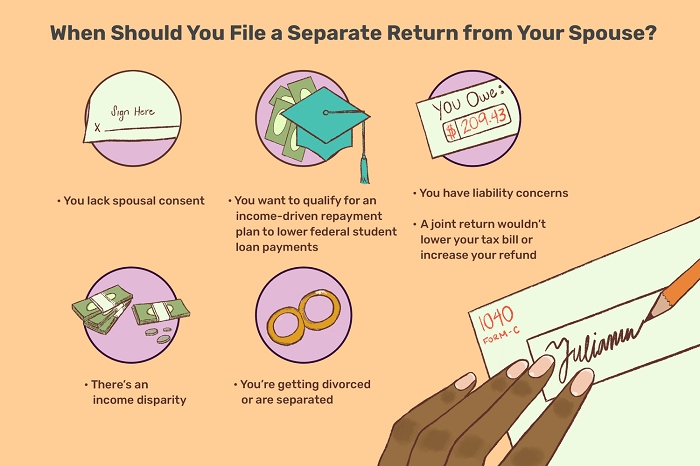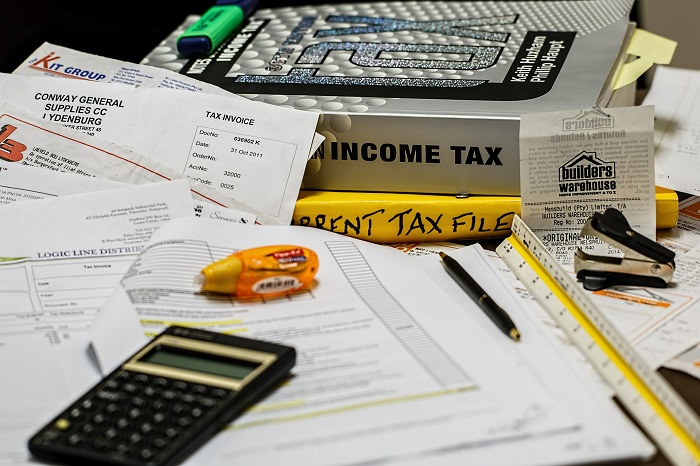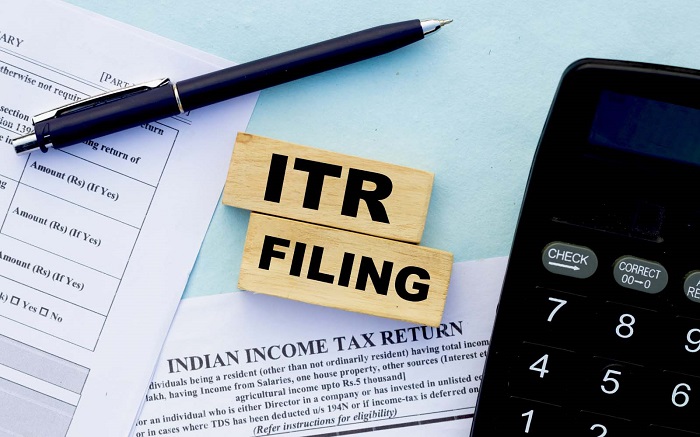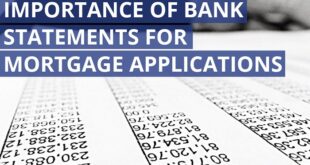Filing taxes with no income can seem like a paradox, but it’s a reality for many individuals. Even if you have no earned income, it’s essential to consider the possibility of filing taxes for various reasons. Firstly, filing taxes can make you eligible for certain tax credits or benefits that you may not be aware of. For instance, the Earned Income Tax Credit (EITC) is available to low-income individuals who meet specific criteria. Additionally, even if you have no income to report, filing a tax return can establish a record with the IRS, which may be beneficial in future tax years if your financial situation changes.
Moreover, when facing unemployment or underemployment, it’s crucial to stay proactive about maintaining your tax obligations and records. Filing taxes with no income is not just about meeting regulatory requirements; it also offers an opportunity to stay informed about potential deductions or exemptions for which you might qualify in the future. In essence, viewing the process as an opportunity rather than a burden can lead to improved financial literacy and better preparation for any circumstances that may arise in the future.
Understanding the Situation filing taxes

Filing taxes with no income may seem unnecessary or even confusing to some individuals. However, it’s important to understand that filing taxes can still be beneficial even if you haven’t earned any income. By filing your taxes, you may be eligible for tax credits and refunds that can provide financial assistance or reduce future tax liabilities. Additionally, keeping a record of your non-income-related tax filings can also help establish your compliance with the tax laws.
Moreover, filing taxes with no income can contribute to building a positive credit history, which is valuable for various financial endeavors such as applying for loans or renting an apartment. It’s essential to recognize that the act of filing taxes serves not only as a legal obligation but also as an opportunity to leverage available resources and cultivate financial responsibility. By acknowledging the potential benefits of this process, individuals without income can gain insight into the significance of timely tax filings and utilize them in empowering ways.
Eligibility for Filing Taxes
Tax season is often associated with the stress of meeting deadlines and navigating complex regulations, but many people may be unaware that filing taxes is about more than just reporting income. Eligibility for filing taxes extends beyond just earning a certain amount of money. Even individuals with little to no income may still be required or eligible to file taxes for various reasons, such as refundable tax credits or qualifying for other government benefits. Understanding these nuances in eligibility can help taxpayers avoid potential penalties and take advantage of available resources.
For those with low or no income, it’s essential to stay informed about eligibility requirements for filing taxes. While traditional income sources like wages and salary are common triggers for tax liability, certain non-income factors, such as age, disability status, or household size, can also impact tax obligations. It’s crucial for individuals in this situation to explore all available options and seek professional guidance if needed to ensure compliance with tax laws while also maximizing potential benefits. This approach not only helps individuals fulfill their legal responsibilities but can also lead to accessing valuable financial support through tax credits and refunds.
Non-Income Tax Forms

When it comes to filing taxes with no income, many people may overlook the importance of non-income tax forms. While they may not directly relate to earned income, these forms play a crucial role in various financial situations. For example, the 1098 form is used to report mortgage interest and student loan interest paid throughout the year, which can be beneficial for individuals looking to claim deductions or credits even without traditional income. Additionally, non-income tax forms such as the 1099-INT and 1099-DIV are essential for reporting interest and dividend income from investments or savings accounts, showcasing that taxes extend beyond just earned wages.
Understanding and accurately completing non-income tax forms can help individuals take advantage of potential benefits and incentives provided by the IRS despite their lack of standard income. By paying attention to these often overlooked documents, individuals can maximize their potential refunds or minimize any tax obligations related to their specific financial circumstances. Therefore, when filing taxes with no income, it’s crucial to consider all relevant non-income tax forms and ensure they are completed accurately alongside any traditional income-related filings for a thorough and comprehensive approach to tax compliance.
State-Specific Considerations
When it comes to filing taxes with no income, it’s essential to consider state-specific regulations and requirements. Each state may have its own set of rules regarding tax obligations for individuals with no income. For example, some states offer specific tax credits or deductions for low-income individuals, while others may have different thresholds for who is considered exempt from filing a tax return. Understanding these state-specific considerations can help you navigate the process more effectively and ensure that you are in compliance with all relevant laws and regulations.
Moreover, some states may also have unique programs or resources designed to assist individuals with limited or no income in fulfilling their tax responsibilities. It’s crucial to explore these options and take advantage of any available support that can make the process easier for you. By staying informed about the specific guidelines in your state, you can make informed decisions and potentially uncover opportunities that could mitigate the impact of filing taxes with no income.
Resources and Assistance
Navigating the process of filing taxes with no income can be daunting, but there are resources and assistance available to help individuals in this situation. The first step is to check if you qualify for free tax preparation services offered by organizations like the IRS Free File program or local community centers. These resources provide guidance on how to accurately file taxes when you have no income, making the process more manageable.
Additionally, seeking assistance from tax professionals or volunteer programs can also offer valuable support. They can help ensure that all necessary paperwork is filled out correctly and provide expert advice on any potential deductions or credits that may apply. By taking advantage of these resources and assistance, individuals facing a no-income tax filing can alleviate some of the stress and confusion associated with this process, ultimately leading to a smoother experience overall.
Conclusion: Navigating Tax Filings Without Income

As we conclude this discussion on navigating tax filings without income, it’s essential to emphasize the importance of understanding and complying with the tax laws, even when you don’t have any income. Filing taxes serves as a way to document your financial circumstances and can impact your eligibility for various government programs and benefits. By staying informed about the available options for reporting zero income, individuals can avoid potential penalties and ensure they are in good standing with tax authorities.
Furthermore, engaging in proactive financial planning is crucial when facing periods of no income. While filing taxes may seem unnecessary without earning money, laying the groundwork for future financial stability through savings strategies or seeking out alternative sources of income can help mitigate potential challenges in the long run. Ultimately, keeping abreast of the relevant tax regulations and taking strategic steps toward sustaining financial well-being are vital considerations when navigating tax filings without income.
Can I file taxes with no income?
Filing taxes with no income may seem counterintuitive, but it’s a critical step for various individuals, including students, retirees, and those who are unemployed. Even if you don’t have taxable income, there are several reasons to file a tax return. For example, you may be eligible for refundable tax credits such as the Earned Income Tax Credit or the Child Tax Credit. Additionally, filing a tax return can help establish eligibility for certain government benefits and support applications for student financial aid.
Moreover, reporting zero income on your tax return ensures compliance with IRS regulations and helps maintain your record of filing returns in case you have income in the future. It also provides documentation if you ever need to prove that you were not required to file taxes during a particular year. While it may feel unnecessary at first glance, filing taxes with no income is an essential financial responsibility that can lead to potential benefits and safeguard your financial standing in the long run.
Do you have to file taxes if you have no income?

Filing taxes when you have no income may seem like an unnecessary hassle, but there are some compelling reasons to do so. While it may not be a legal requirement, filing a tax return can still provide benefits such as potentially qualifying for refundable tax credits, including the Earned Income Tax Credit (EITC) and the Child Tax Credit. Additionally, if you’re expecting to generate income in the future or want to apply for certain government assistance programs, having a record of filed tax returns can help establish your financial history and eligibility.
Furthermore, keeping up with the practice of filing taxes even without income demonstrates good financial stewardship and keeps you in compliance with IRS regulations. It’s also worth noting that failure to file a tax return when required could result in penalties and jeopardize your ability to receive certain federal benefits in the future. So while it may initially seem like an unnecessary task when you have no income, filing taxes can ultimately serve as a proactive measure that pays off in various ways down the line.
Are there any other situations in which you’d need to file?
One interesting situation in which you might need to file taxes despite having no income is if you have self-employment income. Even if your net earnings are below the filing requirements, it’s essential to report your income and expenses accurately to establish a record of your self-employment activities. This documentation can be valuable when applying for loans or financial assistance in the future.
Another scenario where filing taxes with no income is necessary is if you want to claim tax credits. Even if you didn’t earn any income during the tax year, you may still be eligible for certain tax credits such as the Earned Income Tax Credit (EITC) or the Child Tax Credit. Filing a return allows you to take advantage of these credits and potentially receive a refund even if you had no taxable income. It’s important to stay informed about available credits and incentives, as they can provide significant financial benefits, regardless of your income level.
Is there any benefit to filing if you’re below the required income threshold?
Filing taxes when you’re below the required income threshold may seem unnecessary, but it can actually offer several benefits. For instance, by filing your taxes even with no income, you may be eligible for refundable tax credits such as the Earned Income Tax Credit (EITC) or the Child Tax Credit. These credits can provide financial assistance and potentially put money back in your pocket, serving as a safety net during times of low or no income.
Moreover, filing taxes can also establish a record of your financial situation with the IRS, which can be beneficial for future tax purposes. It demonstrates compliance with tax laws and regulations and can help streamline any future filings if your income situation changes. Additionally, some state-level programs or assistance may require proof of filing taxes to qualify for certain benefits, so proactively filing even without meeting the income threshold could open up opportunities for receiving additional support. Ultimately, while it may seem counterintuitive to file when you have little to no income, doing so could yield unexpected benefits and pave the way for potential financial assistance down the road.
Be mindful of taxes come filing season
As the tax filing season approaches, it’s crucial to remain mindful of potential tax implications, even if you have no income to report. While having no income might seem like a straightforward tax situation, there are still various factors to consider when preparing and submitting your taxes. For example, ensuring that you claim any available tax credits or deductions could potentially offset future tax liabilities or provide refunds in the years ahead.
Moreover, maintaining accurate records of any financial transactions such as investments, gifts, or inheritances can help streamline future filings and ensure compliance with tax regulations. It’s also advisable to stay informed about changes in tax laws and provisions that may impact your filing status and obligations, as overlooking these considerations could lead to missed opportunities or unnecessary penalties. By staying proactive and conscientious about taxes even with no current income, individuals can effectively position themselves for smoother filing experiences while maximizing potential benefits within the bounds of the law.
 london finance
london finance
